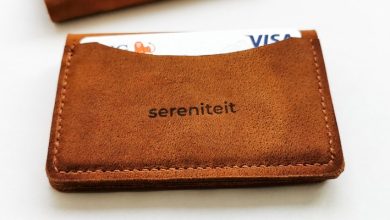Hot Wallets vs. Cold Wallets: Which Is Safer?

- Understanding the difference between hot wallets and cold wallets
- Pros and cons of using hot wallets for cryptocurrency storage
- The security benefits of cold wallets for protecting your digital assets
- How to choose the right wallet for your cryptocurrency needs
- Tips for keeping your cryptocurrency safe in both hot and cold wallets
- Exploring the evolving landscape of cryptocurrency storage options
Understanding the difference between hot wallets and cold wallets
When it comes to cryptocurrency storage, it’s crucial to understand the difference between hot wallets and cold wallets. Hot wallets are connected to the internet and are more susceptible to hacking, while cold wallets are offline and therefore considered more secure.
Hot wallets are convenient for frequent trading and transactions, as they allow for quick access to your funds. However, this convenience comes at a cost, as hot wallets are more vulnerable to cyber attacks. On the other hand, cold wallets are better suited for long-term storage, as they are not connected to the internet, making them less likely to be compromised.
It’s important to weigh the pros and cons of each type of wallet based on your individual needs and risk tolerance. While hot wallets offer convenience, cold wallets provide an extra layer of security that can give you peace of mind knowing your funds are safe from online threats.
Pros and cons of using hot wallets for cryptocurrency storage
When considering the use of hot wallets for storing cryptocurrency, there are both advantages and disadvantages to take into account.
One of the main benefits of hot wallets is their convenience. They are easily accessible online, allowing for quick and convenient transactions. Additionally, hot wallets are often free to use, making them an attractive option for those looking to minimize costs.
However, hot wallets are also more susceptible to hacking and security breaches. Since they are connected to the internet, they are inherently less secure than cold wallets, which are offline. This increased risk of hacking means that users must be vigilant about their security practices when using hot wallets.
Another drawback of hot wallets is the potential for loss of funds if the wallet provider goes out of business or is compromised. In these cases, there may be little recourse for users to recover their funds, highlighting the importance of choosing a reputable wallet provider.
In conclusion, while hot wallets offer convenience and accessibility, they also come with heightened security risks. It is important for cryptocurrency users to weigh the pros and cons carefully before deciding which type of wallet to use for storing their digital assets.
The security benefits of cold wallets for protecting your digital assets
One of the most significant security benefits of cold wallets is the protection they offer for your digital assets. Unlike hot wallets, which are connected to the internet and therefore vulnerable to hacking attempts, cold wallets store your cryptocurrencies offline. This means that even if a hacker gains access to your computer or mobile device, they will not be able to access your cold wallet without physical access to the device where it is stored.
Cold wallets are typically stored on hardware devices such as USB drives or paper wallets. These devices are not connected to the internet, making them immune to online threats such as malware and phishing attacks. By keeping your digital assets in a cold wallet, you can significantly reduce the risk of theft or unauthorized access.
In addition to protecting your digital assets from online threats, cold wallets also offer an extra layer of security in the event that your hot wallet is compromised. If your hot wallet is hacked, you can still access your funds stored in a cold wallet, ensuring that your assets remain safe and secure.
Overall, cold wallets are a highly effective way to protect your digital assets from cyber threats. By storing your cryptocurrencies offline in a cold wallet, you can minimize the risk of theft and unauthorized access, providing you with peace of mind knowing that your assets are safe and secure.
How to choose the right wallet for your cryptocurrency needs
When choosing a wallet for your cryptocurrency needs, it is crucial to consider several factors to ensure the security and convenience of your assets. One key aspect to keep in mind is the type of wallet you opt for – whether it is a hot wallet or a cold wallet. Hot wallets, such as online wallets or mobile wallets, are connected to the internet and are more convenient for frequent trading. On the other hand, cold wallets, like hardware wallets or paper wallets, are offline and provide an extra layer of security for long-term storage.
To choose the right wallet for your cryptocurrency needs, consider the following factors:
1. Security: Evaluate the security features of the wallet, such as two-factor authentication, multi-signature support, and encryption. Cold wallets are generally considered safer due to their offline nature, whereas hot wallets are more vulnerable to hacking.
2. Ease of use: Determine how user-friendly the wallet is for your needs. Hot wallets are often more convenient for everyday transactions, while cold wallets may require more technical know-how to set up and use.
3. Supported cryptocurrencies: Check which cryptocurrencies are supported by the wallet. Some wallets may only support popular coins like Bitcoin and Ethereum, while others offer a wider range of options.
4. Backup and recovery options: Look into the backup and recovery options provided by the wallet in case of loss or theft. Cold wallets typically come with seed phrases or recovery keys for secure backup.
5. Reputation and reviews: Research the reputation of the wallet provider and read reviews from other users to gauge their experiences. Look for wallets with a solid track record of security and reliability.
By carefully considering these factors, you can choose the right wallet that meets your cryptocurrency needs while prioritizing security and convenience. Remember to regularly update your wallet software and backup your keys to safeguard your assets.
Tips for keeping your cryptocurrency safe in both hot and cold wallets
When it comes to keeping your cryptocurrency safe, whether in a hot wallet or a cold wallet, there are a few tips you can follow to ensure the security of your funds. Here are some best practices to keep in mind:
- Use strong, unique passwords for your wallets. Avoid using easily guessable passwords or reusing passwords from other accounts.
- Enable two-factor authentication (2FA) wherever possible to add an extra layer of security to your accounts.
- Keep your wallet software up to date to protect against any known vulnerabilities that could be exploited by hackers.
- Avoid accessing your cryptocurrency wallets on public Wi-Fi networks, as these connections can be insecure and susceptible to hacking.
- Consider using a hardware wallet for storing a large amount of cryptocurrency, as these devices offer an extra level of protection by keeping your private keys offline.
By following these tips and staying vigilant about the security of your cryptocurrency wallets, you can help protect your funds from theft and unauthorized access.
Exploring the evolving landscape of cryptocurrency storage options
Cryptocurrency storage options have evolved significantly over the years, offering users a range of choices to secure their digital assets. Hot wallets and cold wallets are two popular methods that cater to different needs and preferences. Hot wallets, also known as online wallets, are connected to the internet, making them convenient for frequent transactions. On the other hand, cold wallets, or offline wallets, offer enhanced security by storing private keys offline.
As the cryptocurrency landscape continues to expand, new storage options are emerging to meet the growing demand for secure and user-friendly solutions. Hardware wallets, such as USB devices, provide an extra layer of protection by keeping private keys offline and require physical access to initiate transactions. Paper wallets, which involve printing out private keys and addresses, offer a simple and low-cost storage solution for long-term holding.
With the increasing popularity of cryptocurrencies, it is essential for users to understand the different storage options available and choose the one that best suits their needs. Whether opting for a hot wallet for quick access to funds or a cold wallet for long-term security, it is crucial to prioritize the safety of your digital assets. By exploring the evolving landscape of cryptocurrency storage options, users can make informed decisions to safeguard their investments in the volatile world of digital currencies.



